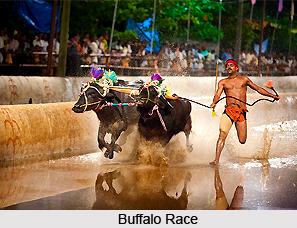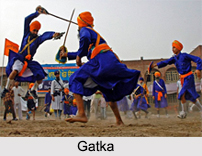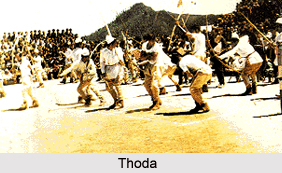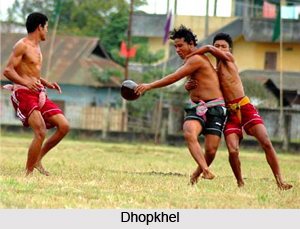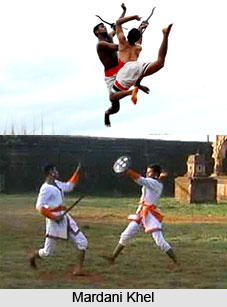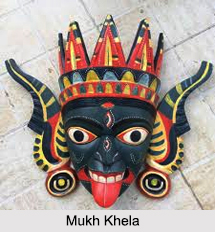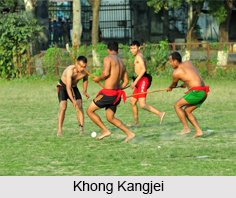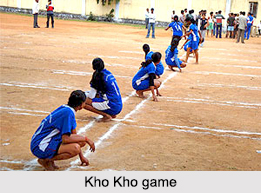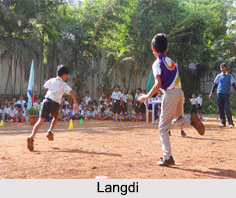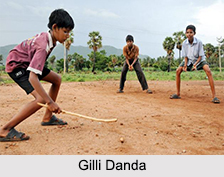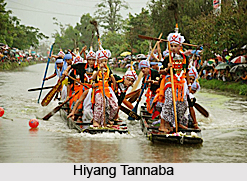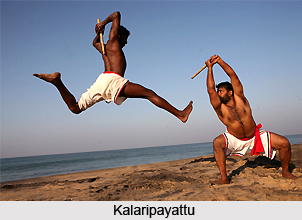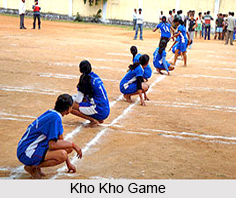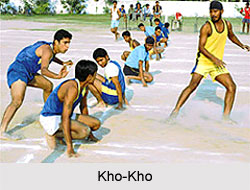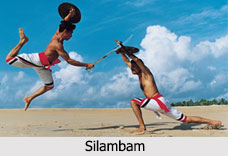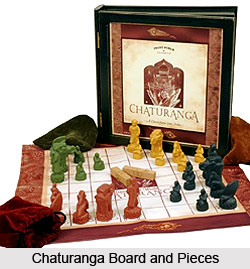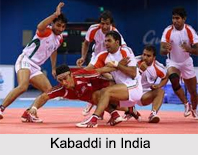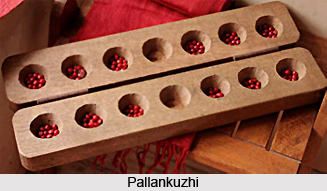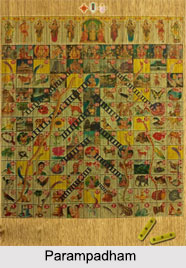 Parampadham or Thayam is one of the traditional board games of India. Paramapadham in English means Snakes and Ladders. Inspired by religion, the game was created in ancient India before 1892.
Parampadham or Thayam is one of the traditional board games of India. Paramapadham in English means Snakes and Ladders. Inspired by religion, the game was created in ancient India before 1892.
Etymology of Parampadham
Paramapadham is also known as Parama Pada Sopanam which means "Steps to the Highest Place". The terms "Parama Pada" means highest place and "Sopanam" means steps.
History of Parampadham
The game of Parampadham or Thayam was popular in ancient India by the name of Moksha Patam. Parampadham is also associated with the traditional Hindu philosophy contrasting karma and destiny. This traditional game was believed to be symbolic of a man`s attempt to reach God. In the game, the ladders represent virtues while the snakes represent vices. The snakes carry names linking them to stories from epics.
Things Required to Play Paramapadham
Paramapadam Board
Dice
Markers
The good part about this indoor sport is that the game pieces can be anything like seeds, coins, shells etc. The one thing that the players have to keep in mind is that each game piece has to be different to identify which belongs to the respective player.
Techniques of Playing Paramapadham
While playing Paramapadham, the players need to place their game pieces on the space on the board labelled 0. They can start only when they get 1 or Thayam when they roll the dice.
Usually, the dice is rolled in clockwise direction or it can also be decided by all the players rolling the dice. The one who gets the largest resulting number will take the first turn.
The first player rolls the dice and mark off the number rolled starting on the spot on the board. All players take turns rolling the dice and moving their markers.
If the marker reaches the number which has bottom of the ladder, the player climbs the ladder and goes to the top of the ladder and continues from there.
If the marker reaches the number which has the face of the snake then he needs to go down to the box where it has its tail and continue from there.
A player gets an extra turn if he gets 1, 5 and 6 while rolling. However, he needs to move the marker each time he rolls the dice as he needs to follow the ladder or snake for each turn.
If the player gets three "6" in a row while rolling he must return to "0" that is the beginning of the board and should not move until he roll"s another 6 on his turn.
In the game of Paramapadham, the winner is the one who first reaches the "100" box on the board.
